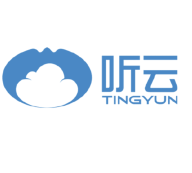

Find out what your peers are saying about Splunk, Wazuh, IBM and others in Security Information and Event Management (SIEM).
| Product | Market Share (%) |
|---|---|
| Splunk Enterprise Security | 7.4% |
| Wazuh | 7.3% |
| IBM Security QRadar | 5.6% |
| Other | 79.7% |
| Product | Market Share (%) |
|---|---|
| Tingyun App | 0.3% |
| Dynatrace | 6.6% |
| Datadog | 5.5% |
| Other | 87.6% |
| Company Size | Count |
|---|---|
| Small Business | 109 |
| Midsize Enterprise | 50 |
| Large Enterprise | 264 |
Splunk Enterprise Security delivers powerful log management, rapid searches, and intuitive dashboards, enhancing real-time analytics and security measures. Its advanced machine learning and wide system compatibility streamline threat detection and incident response across diverse IT environments.
Splunk Enterprise Security stands out in security operations with robust features like comprehensive threat intelligence and seamless data integration. Its real-time analytics and customizable queries enable proactive threat analysis and efficient incident response. Integration with multiple third-party feeds allows detailed threat correlation and streamlined data visualization. Users find the intuitive UI and broad compatibility support efficient threat detection while reducing false positives. Despite its strengths, areas such as visualization capabilities and integration processes with cloud environments need enhancement. Users face a high learning curve, and improvements in automation, AI, documentation, and training are desired to maximize its potential.
What Are the Key Features of Splunk Enterprise Security?In specific industries like finance and healthcare, Splunk Enterprise Security is instrumental for log aggregation, SIEM functionalities, and compliance monitoring. Companies leverage its capabilities for proactive threat analysis and response, ensuring comprehensive security monitoring and integration with various tools for heightened operational intelligence.
Tingyun is the company's new APM service platform, providing customers with a full range of solutions from mobile client to server to network level. Help customers real-time monitor and locate multi-dimensional and complex performance problems ranging from crash reports, slow interactions to network environment errors. Tingyun is committed to IT management innovation services from a user perspective, providing end-user end-to-end performance management solutions for a complete application chain for different industries, helping customers to continuously optimize system performance and user experience, and improve user satisfaction and corporate competitiveness.
We monitor all Security Information and Event Management (SIEM) reviews to prevent fraudulent reviews and keep review quality high. We do not post reviews by company employees or direct competitors. We validate each review for authenticity via cross-reference with LinkedIn, and personal follow-up with the reviewer when necessary.